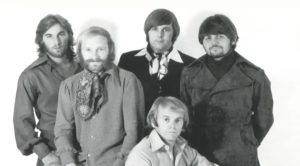How Bob Seger Wrote “Turn The Page”

via @Soroosh Kermani / YouTube
Behind the spotlight and roaring applause lies a side of rock ‘n’ roll that fans rarely witness — the grueling reality of life on the road. Bob Seger’s “Turn The Page” wasn’t just a song; it was a reflection of the emotional toll that touring took on him. Far from glamor, it captured the exhaustion, the solitude, and the disconnection that can quietly consume a musician’s spirit.
Seger painted a raw picture of this existence: miles of empty highway, late-night hotel rooms, and the kind of loneliness that creeps in once the music stops. These weren’t exaggerated tales — they were real experiences felt by countless artists. “Turn The Page” became a voice not just for Seger but for every musician who’s ever driven through the night questioning if it’s all worth it.
In many ways, the song became a form of therapy. Seger used it to process what most people never see — the behind-the-scenes pressure of maintaining a public image while internally burning out. The result is a ballad that resonates deeply with artists and fans alike, offering a sobering reminder that fame often comes at a hidden cost.
View this post on Instagram
Writing On the Road: A Rare Creative Spark
For Seger, songwriting didn’t usually happen on tour. He described himself as more of a “field general,” someone focused on the logistics and performance of each show rather than creative expression. But “Turn The Page” was an exception. Along with “Night Moves,” it was one of the rare songs he sketched while still on the move, using scattered hours to shape the verses.
The process wasn’t easy or traditional. Seger would jot down lyrical ideas during short breaks, gradually building a framework. However, the real work happened later — during rare moments off the road when he could finally focus and bring the song to life. This on-the-road writing experience gave “Turn The Page” a rawness and immediacy that could only come from lived experience.
Interestingly, one of the most poignant lines in the song — “Later in the evening when you lie awake in bed with the echo from the amplifiers ringing in your head” — stemmed from Seger’s struggle with tinnitus. Caused by constant exposure to loud volumes, the condition turned quiet nights into moments of discomfort. The line wasn’t poetic exaggeration; it was a literal depiction of the toll touring had taken on him.
View this post on Instagram
What It Means To “Turn The Page”
The phrase “Turn The Page” isn’t just a song title — it’s a mindset. For musicians constantly on the road, each city, each performance, and each sleepless night becomes a chapter. There’s no time to dwell on the past or nurse emotional wounds. You pack up, move forward, and, quite literally, turn the page.
Seger’s lyrics capture that forward momentum, even when it hurts. Driving through endless highways, leaving behind both victories and regrets, musicians have no choice but to start fresh every day. The road becomes both a physical and emotional journey — one where growth comes not from comfort, but from endurance.
Watching a band like Steppenwolf cover this track gives the song new life, a new voice — and yet, the soul of Seger’s message remains untouched. It’s a tribute not only to his songwriting but to the universal experience of musicians navigating the highs and lows of their careers. “Turn The Page” is more than a ballad; it’s a shared anthem of survival.












